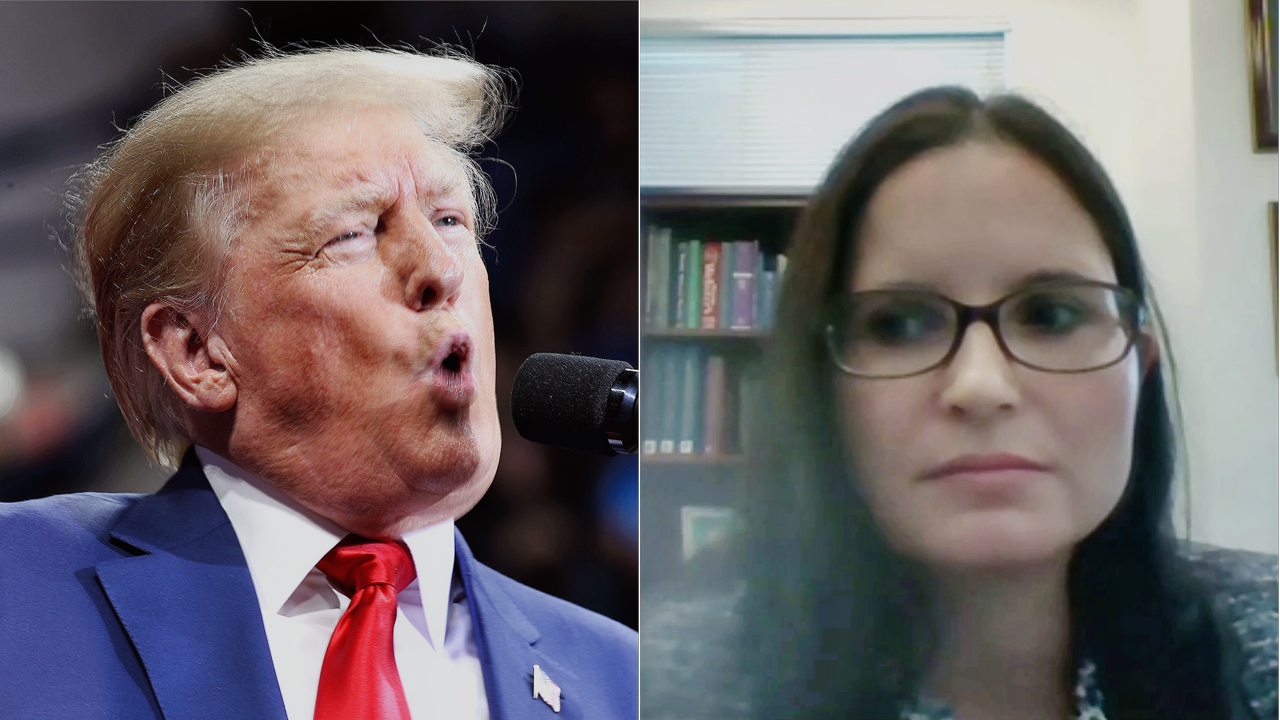JUST IN: DoJ Attacks Trump-Appointed Judge’s Order In Appeals Court Motion To END Investigative Delays

L: Spencer Platt/Getty Images
The Department of Justice has filed a motion attacking Trump-appointed District Court Judge Aileen Cannon‘s order delaying their investigation, seeking to fast-track an appeal they say could end those delays.
Cannon — a Trump appointee — has previously ruled that not only should a special master must be appointed to review the seized documents, she enjoined the Justice Department from using the documents in its investigation of Trump for crimes involving the Espionage Act in the interim.
She also issued the ruling appointing Judge Raymond Dearie — one of Team Trump’s proposed candidates — as Special Master, and denying DoJ’s motion to continue their review of the 100 classified documents seized.
But a three-judge panel in the 11th Circuit Court of Appeals — Obama appointee Judge Robin Rosenbaum, Trump appointee Judge Britt Grant, and Trump appointee Andrew Brasher — overturned Cannon’s decision, and ruled the government could continue investigating the classified documents.
Now, the Justice Department is asking the 11th Circuit to fast-track their latest appeal, which they say could end delays to their investigation once and for all.
In a filing Friday, the DoJ wrote that “expediting this appeal will serve the interests of judicial economy” and could end the Special Master delays altogether:
The motions panel concluded that Plaintiff’s uncontested failure to make a showing as to the first factor set forth in Richey “is reason enough to conclude that the district court abused its discretion in exercising equitable jurisdiction here.” Trump, 2022 WL 4366684, at *7.
Although the panel’s determination related specifically to the documents bearing classification markings, its reasoning arguably applies more broadly. If this Court agrees that the district court lacked jurisdiction, further proceedings before the special master and district court would end.
Alternatively, if this Court upholds the district court’s exercise of jurisdiction but concludes that Plaintiff cannot assert executive privilege against the Executive Branch in these circumstances, as the government maintains, such a ruling would substantially narrow the special master proceedings.
Absent such resolution by this Court, the special master proceedings could result in prolonged litigation, including through seriatim appeals to the district court from reports and recommendations and other rulings issued by the special master. See D.E. 91 at 6 (parties may contest any “scheduling plans, orders, reports, or recommendations” issued by the special master).
The government also argued that the documents they’re barred from examining could constitute evidence of very serious crimes like obstruction:
Finally, an expedited appeal would serve the interests of justice. Based on the district court’s orders thus far, the government is barred from accessing all of the materials except those with classification markings recovered in August pursuant to a lawful search warrant—and it may continue to be barred from doing so until mid-December or later.
To be sure, the government sought a partial stay of the district court’s September 5 order only as it pertained to records bearing classification markings because those aspects of the order caused the most serious and immediate harm to the government and the public. And the motions panel agreed that the injunction against government and the public. And the motions panel agreed that the injunction against the government’s review and use of those records for criminal investigative purposes “risks imposing real and significant harm on the United States and the public.” Trump, 2022 WL 4366684, at *11. Even if not to the same degree, such harms persist with respect to the district court’s injunction against the government’s review and use of thousands of remaining documents and other materials that were recovered pursuant to a court-authorized search and may constitute evidence of crimes.
The government is thus unable to examine records that were commingled with materials bearing classification markings, including records that may shed light on, for example, how the materials bearing classification markings were transferred to Plaintiff’s residence, how they were stored, and who may have accessed them. The records not marked as classified may also constitute evidence of potential violations of 18 U.S.C. § 1519 (obstruction) and 18 U.S.C. § 2071 (concealment or removal of government records).
In short, an expedited schedule for briefing and argument may enable the government, if it is successful in this appeal, to more quickly resume its full investigation without restraints on its review and use of evidence seized pursuant to a lawful search warrant.
The filing closes by noting that “Counsel for the United States has conferred with Plaintiff’s counsel, Christopher M. Kise, who states that Plaintiff opposes the relief requested in this motion. In sum, the United States respectfully requests that the Court expedite this appeal for the good cause shown in this Motion.”
Christopher Kise is the attorney who quit his job at a prestigious firm and got a $3 million payday to lead the defense team for the Mar-a-Lago Espionage Act investigation. CNN’s Kaitlan Collins recently reported that after only a few weeks, Kise had been “sidelined” from that case.




